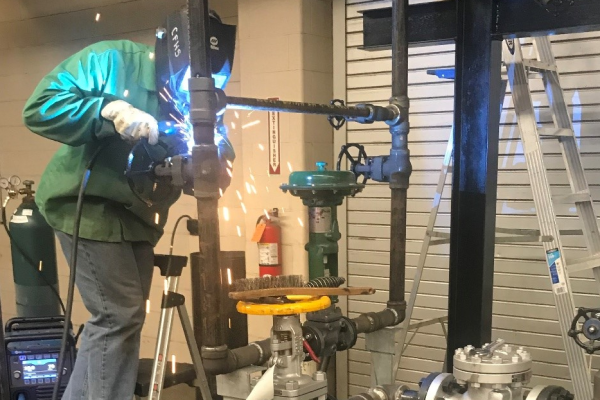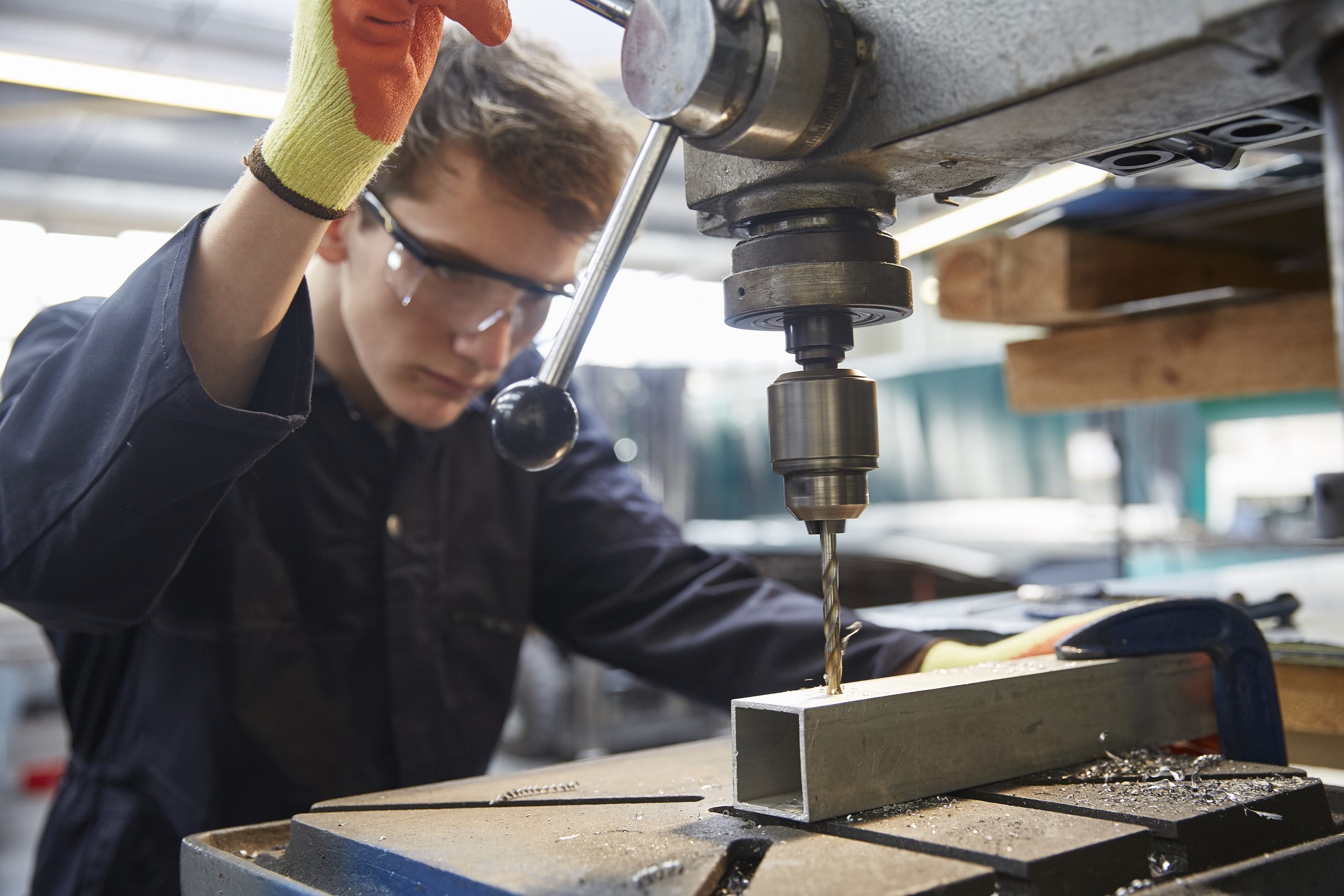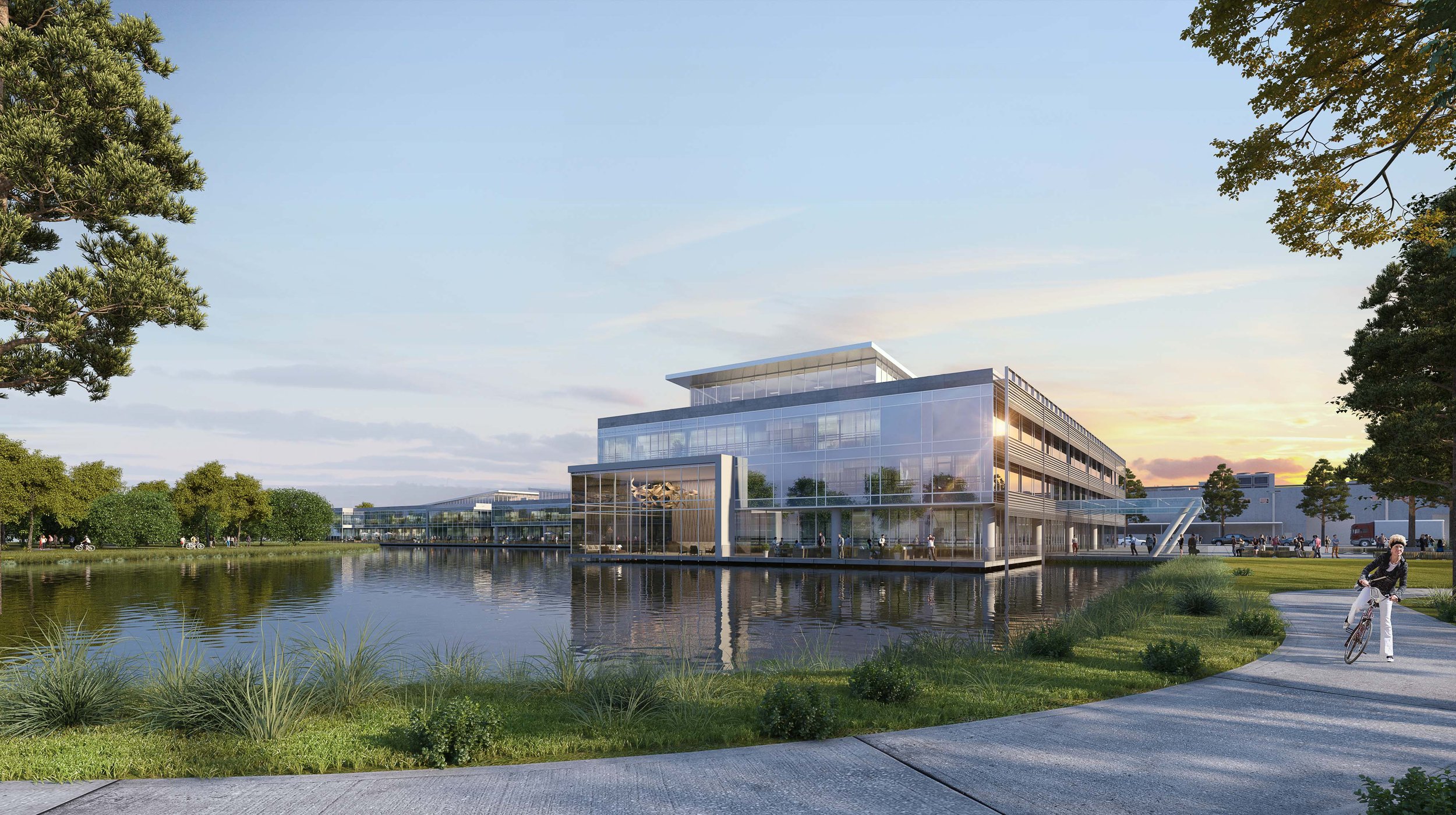Houston Employers Partner with Education to Invest in Future Talent
Published Mar 18, 2021 by Susan Moore
This winter, Brazosport ISD announced a new major giving campaign to support career and technical education (CTE) programs and named Dow Chemical as its first major campaign backer. The company has pledged $2.5 million toward the district’s $5 million goal, according to the district.
Dow has been a longtime supporter of the district’s Systems Go Rocketry Program and FIRST Robotics teams, providing both monetary grants and Dow mentors to work with students. These will be housed in the new CTE Center, according to the company. It has also supported district CTE programs through its “Project Lead The Way” and “Dow Gives Education Grants” programs to help the district offer new engineering and cybersecurity pathways, and for various STEM projects, respectively.
Dow’s commitments are recent examples of major Houston-area employers investing resources into K-12 career and technical education programs to improve facilities and opportunities for the region’s students. These investments illustrate the commitment of employers in strengthening the pipeline of local talent and building viable pathways from the classroom to good careers, especially for craft trades with high-demand projections over the next several years.
The Texas Workforce Commission (TWC) lists electricians, welders and cutters, HVAC mechanics and installers, and pipefitters among its top 10 targeted occupations statewide; engineers of various types, software developers and network and computer systems administrators join the list in the Gulf Coast region. Education programs that expose students to these and related trades and allow students to get a literal feel for the work and industry can help students make informed career decisions.
In 2019, MAREK launched its MAREK Construction Academy program in partnership with Houston ISD and Houston Community College (HCC) allowing high school juniors and seniors to earn dual high school and college credit and gain valuable, on-the-job training through paid summer internships. Students gain experience installing drywall and framing along with blueprint technology and other skills. Students who complete the program graduate high school with National Center for Construction Education and Research (NCCER) industry credentials, an OSHA certification and an opportunity to work with MAREK, along with a high school diploma and a Certificate Level 1 in Construction Management Technology from HCC. The program was modeled on a similar electrician “pre-apprenticeship” program between TRIO Electric, HCC and Spring Branch ISD that has since expanded to Alief ISD in the Houston region along with school districts in Austin and Fort Worth.
S&B Engineers and Constructors is taking a different approach to engage students in career exploration and education. During the 2019-20 school year, volunteers from S&B spearheaded a committee of volunteers from major employers including Turner Industries, Dow and Worley, among others, to hold an industrial craft competition in partnership with seven area school districts as part of the Houston Livestock Show and Rodeo. This competition, piloted last year but now an established part of the Rodeo, challenges student teams to construct industrial skids. Students learn through the months-long exercise how to use technical skills common to industrial construction, including how to follow plans, submit requests for information (RFIs) and meet industrial safety expectations. The project helps teachers keep up with industry practices and standards, as well.
3DE by Junior Achievement creates a partnership between education and business and fundamentally changes the high school instructional model. The 3DE model, launched within Houston ISD this school year, builds student-centric education around a series of real-world questions presented by sponsor companies, such as Accenture, Deloitte and Quanta Services. Sponsors serve as mentors as students work through the case-study projects, and students complete internships or consultancies with employer sponsors during their senior year. The model will be introduced into a second district school next school year. (Related: Re-Imagining Education and Career-Connected Learning — How Junior Achievement is Driving Opportunity for All)
Dow, MAREK and S&B Engineers and Constructors are employer-champions among the more than 130 employer partners in the Partnership’s nationally-recognized, employer-led UpSkill Houston initiative, which mobilizes the collective action of employers, educators and community-based leaders to strengthen the talent pipeline the region’s employers need to grow their businesses and to help all Houstonians develop relevant skills and connect to good careers that increase their economic opportunity and mobility.
Get involved with the UpSkill Houston initiative.
 The Houston Report
The Houston Report





















